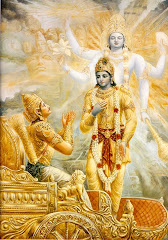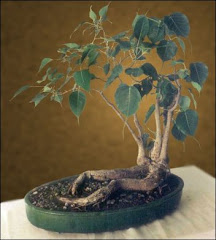 I have
never read Tania James. Never even
heard of her... before Aerogrammes, that is. So, when I discovered she was
the author of a reasonably well-received novel, Atlas of Unknowns, before venturing into short story territory, I
fearlessly opted to read and review her debut short story
collection, titled: Aerogrammes.
I have
never read Tania James. Never even
heard of her... before Aerogrammes, that is. So, when I discovered she was
the author of a reasonably well-received novel, Atlas of Unknowns, before venturing into short story territory, I
fearlessly opted to read and review her debut short story
collection, titled: Aerogrammes.
The name
induced nostalgia in my mind and heart - of times gone by, when cassette
players, radios, big bulky telephones, carbon papers, pen-friends, inland
letters, aerogrammes, et al held sway; when people actually wrote
letters, meaning: when people actually put pen to paper. Not any more. Alas,
just as the new generation will never get to know the co-relation between a pencil and
a music-cassette, it will forever remain a stranger to the joys of letter writing (and reading) too.
So, needless to say, I began reading this book with much
anticipation. To cut to the chase, the premise is sound but the execution is
both rather superficial and repetitive (or too convoluted). James' stories are
about Malayalis in the USA, and all of them pretty much feel like fish out of
water. Or like puttu that has not been steamed but fried instead... or worse:
micro-waved. Or (maybe) like pastries minus the mandatory coconut
shavings as toppings; like food cooked in sunflower oil and not in
coconut oil; like tea without the accompaniment of the yellow-coloured banana chips
or the orange-hued tapioca chips - to munch along. Take your pick.
The stories, and there are nine of them, each spanning
some 20 pages, fall victim to an overdose of lyricism. Here's an example: "I
linger in the still pool of his sorrow" - thoughts from the child narrator of
"The Gulf" - as she watches her father cry. While: a girl meeting
the chimpanzee she grew up with thinks: "she had collected those memories like precious
stones, kept them all these years. Hadn't he?" These don't quite generate lyrical
poignancy or tug at our heartstrings. Instead, they are like the "cute shots"
in cricket.
Tania has put together an eclectic mix of characters: two
Indian wrestlers in the London of 1910, a chimpanzee, several children, an
aging dance teacher-cum-convenience store cashier, a former grocer, a wannabe
Hollywood script-writer, a ghost, a boy obsessed with handwriting, a demented
old man in Kentucky who walks seven miles to buy his granddaughter a Ken doll...
However, none of them seem to feel at home. None of them
seem to be able to come to terms with being in America (and that makes the title, Aerogrammes - seem rather apt.) The former grocer (Hari
Panicker in Aerogrammes) feels: space is overrated in this country; the
somewhat demented old man (from Ethnic Ken) says: it's hard being here
(and misses his tamarind tree back home, or can smell the nishagandhis -
even when it is just a plug-in air freshener.) While the aging bharatanatyam
teacher and convenience store cashier (Minal Auntie in Light & Luminous)
has her own internal demons to contend with.
The retired grocer must decide between his sister's cramped
house (with greasy door-knobs) and a nursing home. He knows that his only son
will never visit him there, and does not want yet another slow abandonment. He
has to decide whether his fellow nursing home residents are more caring than
his family. The demented old man sees his dead wife (Ammu) in his nine-year-old
granddaughter (Amy Abraham). "The Gulf" - narrated by an
eight-year-old, shows the broken lives of a family whose father has spent years
working in Dubai and has come back - a complete stranger, leaving behind another
woman who may be watching the road and waiting for him, just like his other
family once did.
The handwriting analyst, Vijay (in The Scriptological Review:
A Last Letter From the Editor), is struggling to recover from his father's
death; a father (Prateep Pachikara) who was in the habit of disappearing for a whole day - to put it
euphemistically, and though Vijay analyses everyone else's handwriting, he skips his own. However, in this story we come across a "castrated 'y'" and a
colon magnified to reveal, "the slight eyelash left by the lingering pen"; while, his mother's teeth are "lacquered with wine".
Interesting turn of phrases, I must say; but the script
itself needs some reworking, it sags and feels incomplete, does not come across
as logical either.
"What to Do With Henry," is about a 5-year-old kid (Neneh)
from Sierra Leone - adopted and taken to the United States by Pearl (wife of the man who fathered her.) Neneh finds a kindred spirit, a brother,
in the baby chimp (Henry) - adopted on the same day as her (by Pearl), until
he too is donated to the zoo. Here begins the saga of Henry, "the ape who loved
blondes over baboons". He loved buttered popcorn and Dole fruit cup too. The
tragedy of a chimp raised as a human child comes through fully, and so does the
poignant story of the girl who grows up with him. But I did not quite get the
ending bit: "This was death - a last, luminous surge. The hunter was gone, but her
death was prolonged, painless, as Henry crouched beside her. And though he
could not talk, they were communicating in a wordless language all their own,
and he was thanking her, he was telling her that he loved her, he was promising
her that she was not alone."
The closing "Girl Marries Ghost" imagines a society where
people who are desperate for companionship can marry ghosts (!) - who are eager
to spend a little time back in the real world. But the marriage portrayed in
this story (between Gina and Jeremy, the wealthy ghost) flounders since both
the human and the ghost are unable to let go of their messy pasts. [But
the premise of this story is quite novel, must say.]
The book jacket cover has a lion and a panther wrestling
each other, no doubt inspired from the opening story, "Lion and Panther in
London".
Gama - the lion of Punjab. Gama - Champion undefeated
wrestler of India, winner of over 200 legitimate matches. Imam - his brother,
Champion of Lahore, the Panther of the Punjab.
In this story, two Indian wrestlers (Gama and Imam) have
been brought to England in 1910 - to fight in challenge matches. [NO ONE BARRED!!
ALL CHAMPIONS CORDIALLY INVITED!! THE BIGGER THE BETTER!! - their posters
claim.]
But no one comes; no one wants to challenge them. Keeping
them company in gloomy London is old Ahmed - their cook from Lahore. He is deaf
in one ear but knows every nuance of pehlwan diet.
After several weeks of boredom and "staying indoors,
as if they have ironing to do," their British tour manager, Mr. Benjamin, empties a sober sigh into his teacup (having
run out of small talk), and explains
that wrestling in England has become something of a business. He goes on to indicate
that there would be challengers - if only they would agree to take a fall
here and there.
This was not a mere suggestion, but an eye-opener for Gama and Imam; their first
real encounter with the world of sports and a full comprehension of what sportsmen have been turned into, that too in
a city halfway around the world; a city that does not understand sportsmen, nor has any interest in acknowledging them, and will not let them be what they are - sporting
heroes:
"Fall
how?" Gama says.
"On purpose,"
Imam explains quietly.
Gama's mouth becomes small and solemn. Imam tells Mr. Benjamin that they will have to decline the offer.
"But you came all this way." Mr. Benjamin gives a flaccid laugh. "Why go back with empty pockets?"
For emphasis, Mr. Benjamin pulls his own lint-ridden pockets inside out and nods at Gama with the sort of encouragement one might show a thick-headed child.
Gama's mouth becomes small and solemn. Imam tells Mr. Benjamin that they will have to decline the offer.
"But you came all this way." Mr. Benjamin gives a flaccid laugh. "Why go back with empty pockets?"
For emphasis, Mr. Benjamin pulls his own lint-ridden pockets inside out and nods at Gama with the sort of encouragement one might show a thick-headed child.
Gama asks Imam why Mr.
Benjamin is exposing the lining of his pants.
"The langot
we wear, it does not have pockets," Imam tells Mr. Benjamin, hoping the
man might appreciate the poetry of his refusal. Mr. Benjamin blinks at him and
explains, in even slower English, what he means by "empty pockets."
So this is London, Imam
thinks, nodding at Mr. Benjamin. A city where athletes are actors, where the
ring is a stage.
Letting the story unfold
through the eyes of Imam, Gama's younger brother, brings out the inherent
poignancy rather well. It is indeed a journey of two champion wrestlers - and
not just across the seven seas.
I quite liked this story.
The other story I liked is: Light & Luminous. Minal Auntie (the
aging bharatanatyam teacher) tries her best to keep her pride intact in
the face of a sinking feeling that her art is out of step with the times. She
keeps losing her students to a showy dance school - run by someone claiming to
have danced in Bollywood movies with the likes of Madhuri and Sri Devi.
[Though danced behind Madhuri and Sri Devi would have been more like it.]
Minal Auntie is forced to take a second job (as a convenience store cashier) to
make ends meet. Finally, a desperate Minal Auntie goes for a Fairness Facial -
to prevail over her tamarind brown/coffee complexion and claim her moment in
the spotlight at an All-India Talent Showcase (an annual event that is "thick
with Indians and thin on talent").
The author has done well to bring out the emotions and insecurities;
the protagonist has not been reduced to a one-dimensional, pitiable and shallow
character.
Verdict and rating: The emotions conveyed in
all of these nine stories are pretty much the same: attempts to triumph over
indignity, a clash of cultures, sibling rivalry, loneliness, failure, illness, loss (of a loved one
or of friendship) and the like. However, none of these emotions are explored
deeply enough nor is there sufficient background or drama to sustain them - barring two or perhaps three stories. Hence, it gets somewhat repetitive and that's not a good thing, 'coz it interferes with the readers' interest. There are plenty of racial
undercurrents though: Minal Auntie's black colleague, the wonders of light
& luminous, the ethnic Ken doll - brown-skinned and costing half
the price of its white counterpart, and so on. Wonder how hollow is the soul of
a nation that cannot even let dolls be dolls.
The production value of the book is good, barely any editing errors.
The paper quality is very good. Aerogrammes wasn't a breezy read for
me, so I guess you will have to read and see if it works for you.
I'll go with a 2.5/5; most of the stories need not have been flat, some
taut
drama, twists, conflicts, surprise elements and a pruning of the unwanted
lyricism - would have settled well. That
way, the stories would have retained their charm till the last page, instead of
having their pace and flavour interfered with.
Details of the book: Aerogrammes/ Author:
Tania James/ Publisher: Vintage, an imprint of Random House India/ Binding: Hardcover/
Publishing Date: 10/09/2012/ Genre: Fiction/ ISBN: 978-8-184-00301-7/ ISBN-13:
9788184003017/ Pages: 180/ Price: $24.00.
Picture: The
book jacket cover of Aerogrammes Courtesy: link.














Hmmm. Haven't read a book of short stories in ages now. Think I'm going to pass on this one. Btw, you seriously DO need a new template... a wider one... one that doesn't leave so much blank side on both sides and doesn't make readers scroll so much! :p
ReplyDelete@Kaddu: Umm, am too used to this template now. :)
ReplyDelete